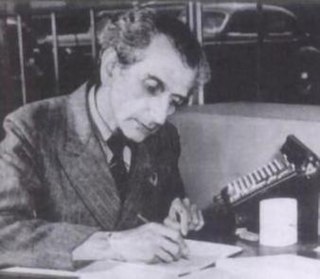A Quote by Martin Gardner
A surprising proportion of mathematicians are accomplished musicians. Is it because music and mathematics share patterns that are beautiful?
Related Quotes
I don't want to convince you that mathematics is useful. It is, but utility is not the only criterion for value to humanity. Above all, I want to convince you that mathematics is beautiful, surprising, enjoyable, and interesting. In fact, mathematics is the closest that we humans get to true magic. How else to describe the patterns in our heads that - by some mysterious agency - capture patterns of the universe around us? Mathematics connects ideas that otherwise seem totally unrelated, revealing deep similarities that subsequently show up in nature.
Though the structures and patterns of mathematics reflect the structure of, and resonate in, the human mind every bit as much as do the structures and patterns of music, human beings have developed no mathematical equivalent to a pair of ears. Mathematics can only be "seen" with the "eyes of the mind". It is as if we had no sense of hearing, so that only someone able to sight read music would be able to appreciate its patterns and harmonies.
Like musicians who can read and write complicated scores in a world without sounds, for us mathematics is a source of delight, excitement, and even controversy which are hard to share with non mathematicians. In our small micro-cosmos we should ever seek the right balance between competition and solidarity, criticism and empathy, exclusion and inclusion.
A chess problem is genuine mathematics, but it is in some way "trivial" mathematics. However, ingenious and intricate, however original and surprising the moves, there is something essential lacking. Chess problems are unimportant. The best mathematics is serious as well as beautiful-"important" if you like, but the word is very ambiguous, and "serious" expresses what I mean much better.
Most of the arts, as painting, sculpture, and music, have emotional appeal to the general public. This is because these arts can be experienced by some one or more of our senses. Such is not true of the art of mathematics; this art can be appreciated only by mathematicians, and to become a mathematician requires a long period of intensive training. The community of mathematicians is similar to an imaginary community of musical composers whose only satisfaction is obtained by the interchange among themselves of the musical scores they compose.
It is almost as hard to define mathematics as it is to define economics, and one is tempted to fall back on the famous old definition attributed to Jacob Viner, "Economics is what economists do," and say that mathematics is what mathematicians do. A large part of mathematics deals with the formal relations of quantities or numbers.




































